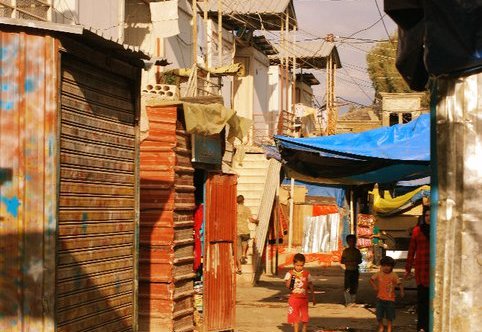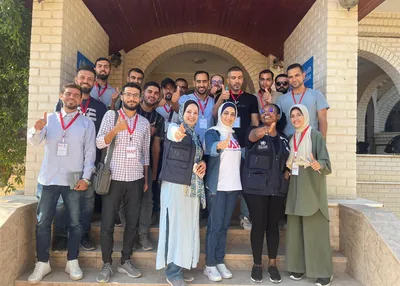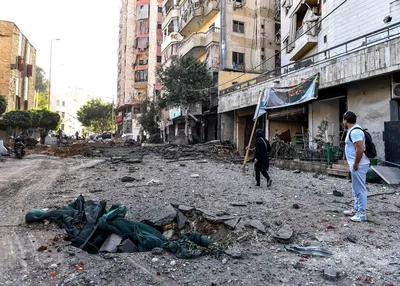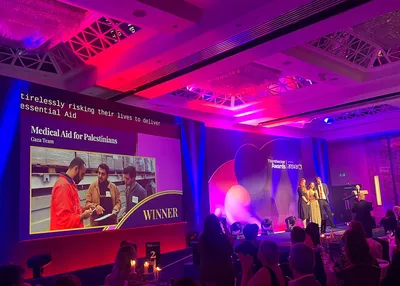“It is not fair. Highly qualified Palestinian doctors are unable to work”

Can you tell us about your work as a medic? What is your current job?
I work at an NGO clinic in a refugee camp and [under the radar] at a private Lebanese hospital.
Can you tell us about your training to become a medic?
I studied at an UNRWA school and I got very high grades which enabled me to obtain an UNRWA scholarship to study medicine at university. When I completed my medical residency and started looking for work opportunities, I faced many challenges.
As a Palestinian, I am not allowed to have the license to practice medicine on Lebanese territory. This meant that I cannot work in the hospital that I did my residency at – which was very disappointing for me. I was not able to travel to the Gulf countries due to restrictions on giving work visas to Palestinians. I tried to teach at universities, but priority was always given to others including those supported by certain Lebanese political parties.
What did the opportunity to study abroad mean to you?
The opportunity to do a Masters of Public Health (MPH) was life-changing. I grew up in a refugee camp which I barely left until I went to university. Suddenly there was electricity cuts all the time and internet.
The MPH helped me develop my research and critical appraisal skills. I learned many new things. Before the MPH, I did not know what medical writing is. After I came back, I published and started doing peer reviews. I believe that doctors should not only focus on developing their clinical skills but also work on their health management, public health, and research skills.
The MPH gave me a competitive advantage and access to important work opportunities such as working at a private Lebanese hospital and with the NGO. However, I continue to face major challenges and limitations related to being a Palestinian doctor. For example, the NGO is facing problems partly due to restrictions on Palestinians and we don’t have job security.
What are the main barriers you perceive for Palestinians seeking to work in the medical/health field?
Palestinian doctors are not given the license to practice medicine in Lebanon. They are not allowed to join the Order (syndicate) of Physicians. They cannot therefore work legally in Lebanese governmental or private hospitals. They often work illegally covered by another doctor who signs prescriptions and other documents. This issue does not allow them to have an identity or a name regardless of how good they are. Thankfully at the hospital where I work they treat us well. This is not the case in most of the other hospitals.
Palestinians are no longer able to travel and work in the Gulf. Their only options are either to work at UNRWA or the Palestinian Red Crescent Society. At UNRWA, it is not easy to find a job, a job position opens only when an employee retires. Also, the number of patients seen by a doctor is huge which does not allow the doctor to give sufficient contact time for the patient. I cannot work this way, I need to give pregnant women sufficient time for nutritional advice and screening.
At PRCS, I feel that every person there is fixed to his/her position and does not work to improve his/her skills, the hospital and its systems. They don’t approve of any new way of doing things. I feel that their knowledge and perspectives are outdated. Some doctors decide to open private clinics inside the camp, but I don’t see the added value as anyway the patient will go to UNRWA for medication and hospital referral.
Do you think there should be more opportunities for Palestinians from Lebanon to study abroad?
I do believe that opportunities should be given to existing doctors to do a masters abroad. But I don’t believe that students should be encouraged to choose a profession that they are not allowed to practice in the country where they live. It is frustrating to spend 11 years studying and then not find work. More advocacy work should be done to change the laws in Lebanon to allow Palestinians to work as doctors and in the health sector in general. It is also important that Palestinians who study abroad come back to Lebanon and work in their community. Many choose not to come back.
What is your hope for your own career? What are your hopes for the community?
I hope I can work freely at hospitals in Lebanon and I can have my own practice.
I plan to continue to do clinical work as well as medical research.
I hope that laws change in Lebanon to allow Palestinian health workers to get licenses to practice their professions in Lebanon. I also hope Palestinian doctor can one day enjoy the same rights and work conditions the Lebanese doctors enjoy. It is not fair that highly competent and qualified Palestinian doctors are unable to work while Lebanese doctors have every opportunity to grow and succeed.
To find out more read our new report, Health in Exile.
*Name changed and some details withheld to protect identity
Related content


